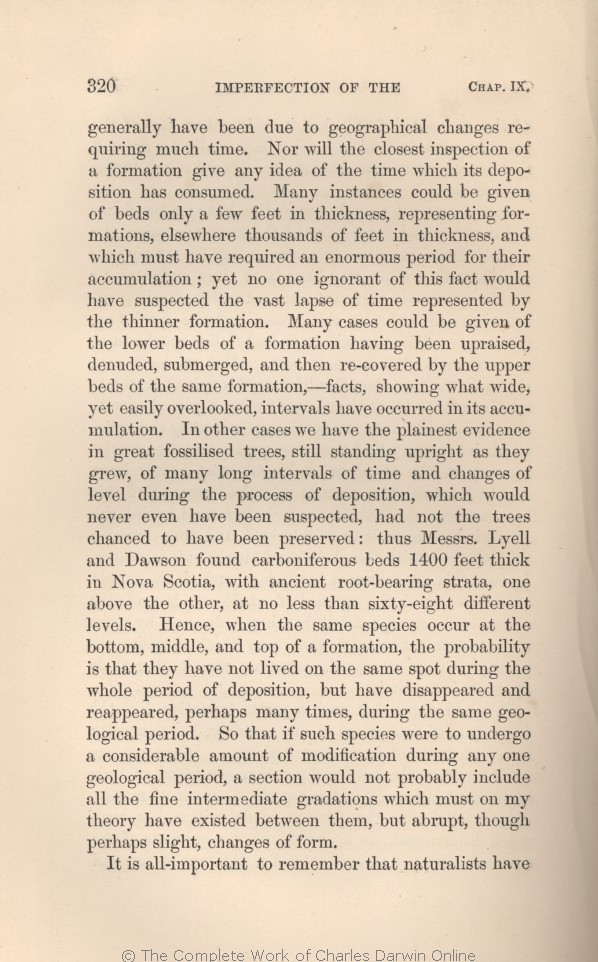Nor will the closest inspection of a formation give
any | any 1859 1860 1861 1866 1869 | | us any 1872 |
| time 1859 1860 1861 1866 1869 |
| length of time 1872 |
| has 1859 1860 1861 1866 1869 | | may have 1872 |
| elsewhere 1859 1860 1861 1866 1869 |
| which are elsewhere 1872 |
| suspected 1859 1860 1861 1866 1869 | | even suspected 1872 |
| never even 1859 1860 1861 1866 1869 | | not 1872 |
| suspected, 1859 1860 1861 1866 1869 | | sus- pected, 1872 |
| chanced to have 1859 1860 1861 1866 1869 |
| OMIT 1872 |
| thus 1860 1861 1866 1869 1872 | | thus, 1859 |
| Messrs. 1859 1860 1861 | | Sir C. 1866 1869 1872 |
| Dawson 1859 1860 1861 | | Dr. Dawson 1866 1869 1872 |
| other, 1859 1860 1861 1866 1869 | | other 1872 |
| occur 1859 1860 1861 1866 1869 | | occurs 1872 |
| they have 1859 1860 1861 1866 1869 | | it has 1872 |
| have 1859 1860 1861 1866 1869 | | has 1872 |
| So that if such species 1859 1860 1861 |
| So that, if such species 1866 1869 |
| Consequently if it 1872 |
| any 1859 1860 1861 1866 1869 |
| the deposition of any 1872 |
| period, 1859 1860 1861 1866 1869 | | formation, 1872 |
| probably 1859 1860 1861 1866 | probably 1869 1872 |
| my 1859 1860 1861 1866 | | our 1869 1872 |
| existed 1859 1860 1861 1866 1869 | | existed, 1872 |
| between them, 1859 1860 1861 1866 1869 | between them, 1872 |
| ..... 1861 1866 1869 1872 | | very 1859 1860 |
|









